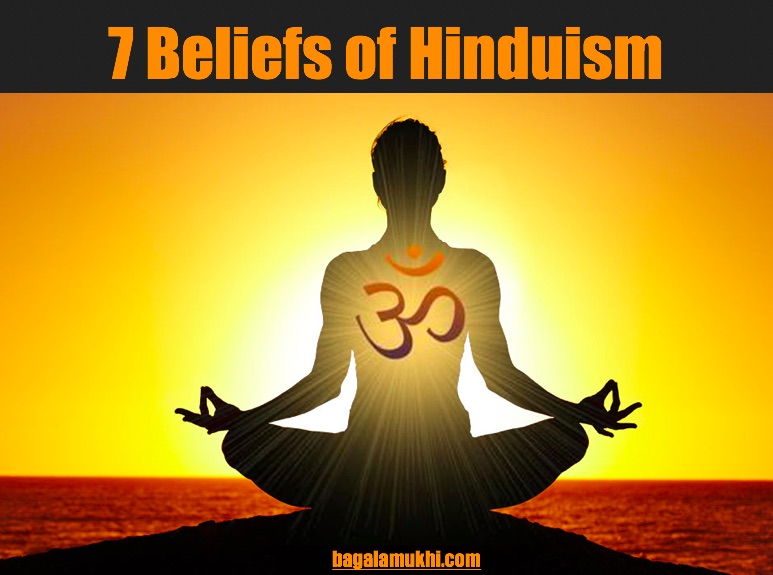Hinduism is the world’s oldest religion. It has no beginning as it precedes the recorded history. There is on definitive human founder of the religion. So, it is mystical and basic religion that encompasses everything in the world. Everything is worshiped including poisonous snakes as “Naag” and helpful cow as “Mother” and “Laxmi Devi”.

One of the greatest thing in Hinduism is that a person can personally experience the Truth within and can reach the pinnacle of consciousness – where the man and the God are one.
The four main aspects of Hinduism are:
- Dharma (ethics/duties or the rules to be followed)
- Samsāra (the continuing cycle of birth, life, death and rebirth)
- Karma (action, intent and consequences)
- Moksha (liberation from samsara or liberation in this life)
As Hinduism is about beliefs of an individual and the following the loosely defined boundaries of doing the right things and avoid the wrongs things. The actions we take help in creating our own destinies and consequences.
Hindu’s belief is very diverse and it is not easy to include everything in a few points. But, the following ten beliefs, though not exhaustive, offer a very simple summary of the Hindu spirituality.
Hindu believe:
- there is One, all-pervasive Supreme Being who is both immanent and transcendent, both Creator and Unmanifest Reality.
- the divinity of the four Vedas guide them. Vedas are the world’s most ancient scripture are considered God’s word and the bedrock of Sanatana Dharma (the eternal religion).
- the universe undergoes endless cycles of creation, preservation and dissolution.
- karma of an individual create the destiny. This is also the law of cause and effect. Each individual creates his own destiny by his thoughts, words and deeds.
- the soul doesn’t die. It reincarnates, evolving through many births until all karmas have been resolved, and moksha, liberation from the cycle of rebirth, is attained. Not a single soul will be deprived of this destiny.
- one can attain divine status and experience the Truth within and can reach the pinnacle of consciousness – where the man and the God are one. Such enlightened person can guide others to follow the same path. That was how the early education system in the world evolved.
- all lives are sacred and they should be loved and revered, and therefore practice ahimsa, noninjury, in thought, word and deed.